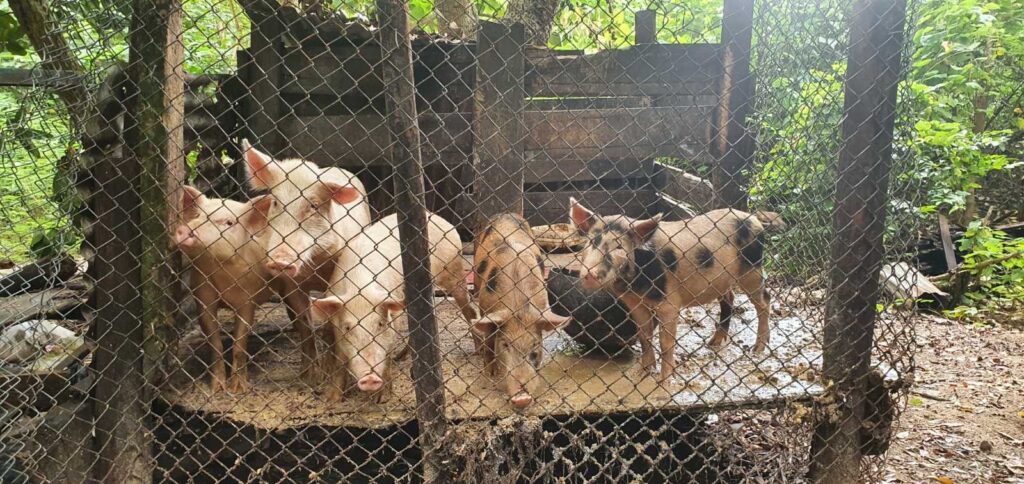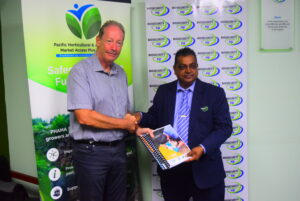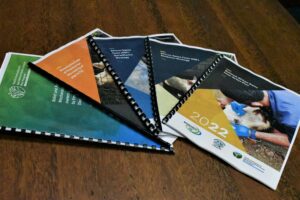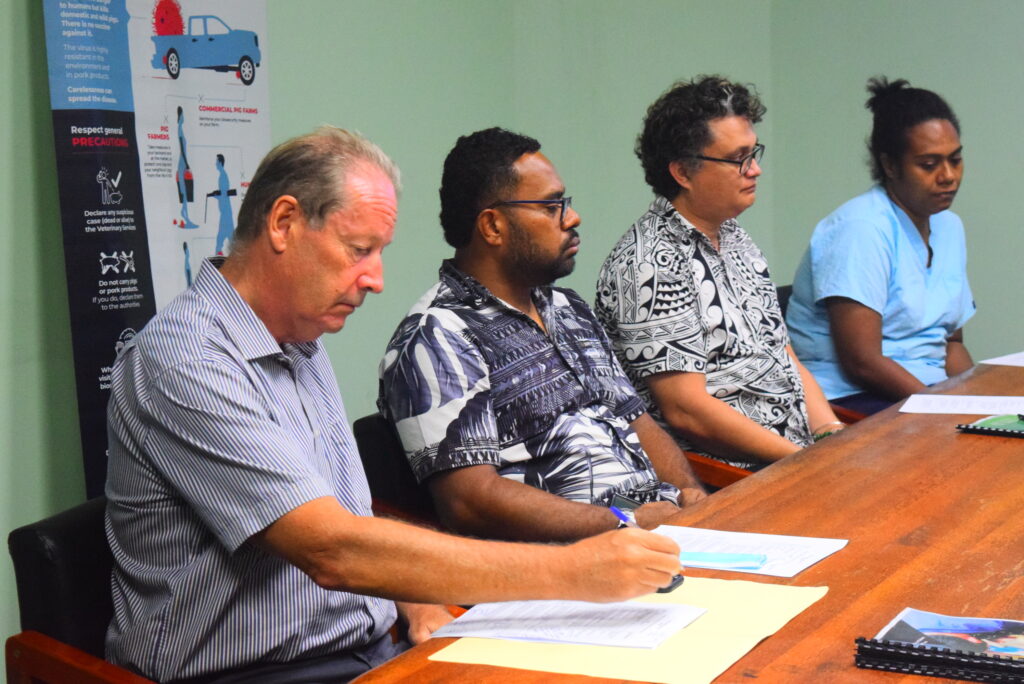Fiji launches National African Swine Fever Action Plan

The Biosecurity Authority of Fiji (BAF) has launched its National African Swine Fever Action Plan as a move to keep Fiji free from the pig killing disease and boost its preparedness for any possible outbreak.
The new plan guides the implementation of nationally agreed actions for a strategic and risk-based approach to enhance Fiji’s ability to prevent the introduction of African Swine Fever or ASF, detect it early if it is introduced and to prepare for a swift response, should ASF be detected in Fiji.
ASF is a highly contagious viral disease that affects and kills wild and domesticated pigs. The disease is transmitted through direct contact with infected pigs, and indirect contact through ingestion of contaminated feed and fomites (clothes, vehicles and farming equipment). With no vaccine or known cure, ASF is one of Fiji’s top animal health priorities due to its potential to severely impact on commercial and subsistence pork production, as well as our social and cultural environments. 
The Plan is part of a suite of documents developed in collaboration with the Fijian Ministry of Agriculture (MoA) and the Australia and New Zealand supported Pacific Horticultural and Agricultural Market Access Plus Program (PHAMA Plus) to help boost Fiji’s preparedness for ASF.
Other documents include an ASF Response Strategy; Biosecurity Guidelines for the Rearing of Pigs in Fiji; Relief and Recovery Mechanisms to support Owners of animals affected by Emergency Animal Disease Outbreaks and Fiji; and an ASF Surveillance Strategy.
In November 2020, BAF signed an MOU with PHAMA Plus to support Fiji’s preparedness in case ASF reaches the country.
“Over the past two years, Fiji has worked hard on implementing necessary precautions against ASF mainly for preventing entry into the country. Our collaboration with PHAMA Plus and MoA helps to boost those precautionary measures and improve border security as well as capacity building for emergency preparedness,” BAF Acting Chief Executive Officer, Surend Pratap said.
“As part of our collaboration, PHAMA Plus assisted BAF to procure PPE, disinfectant and surveillance equipment in order to enhance Fiji’s preparedness mainly to respond during an outbreak situation. Additionally, countrywide training programs were conducted for the animal health workforce that represents BAF and MOA. Farmer training and awareness programs were also conducted from the commercial level to the subsistence level around the country to raise farmer awareness about ASF.”
The preparedness documents were developed by Impact Consulting Group (ICG) for BAF, MoA and PHAMA Plus, drawing on feedback from a national workshop in 2020, followed by a number of consultative sessions. These inputs have assisted in the identification of the core biosecurity activities to prevent, detect and prepare for African Swine Fever, and to validate the actions proposed in these documents. 
“We are not taking any chances on African Swine Fever and therefore we are undertaking various training of our own staff and commercial farmers, should there be a case of outbreak, should there be a slip. These were the trainings that were undertaken by BAF in collaboration with PHAMA Plus with the Ministry, our staff and the commercial parts,” Fiji’s Minister of Agriculture Dr Mahendra Reddy said while addressing Parliament on Monday 4 April 2022.
In 2019, BAF took swift action by banning the personal importation of pork and pork related products into Fiji due to the limited traceability of the disease with personal consignments and the increased global transmission of ASF. BAF currently only allows imports of pig products from Australia and New Zealand, which are free from ASF.
“While Fiji is currently free of ASF, it is a threat to the Pacific with the disease now present in Papua New Guinea and the easing of travel restrictions in the region. PHAMA Plus is pleased to support efforts to keep Fiji ASF free and safeguard livelihoods that depend on pigs,” PHAMA Plus Team Leader, Andrew Piper said.
“In addition to working in Fiji, PHAMA Plus continues to support the Government of PNG to manage the ASF outbreak and with the Pacific Community (SPC) to strengthen animal health capacity in the region. This includes having technical specialists available, awareness raising and distribution of diagnostic kits to test pig health in the field.”
According to the 2020 Fiji Agriculture Census, about 8,515 farming households are involved in pig farming with a total known stock of 58,420 pigs in the country.
ENDS
Farmers and pig owners particularly need to be on the lookout and report any unusual symptoms or deaths of pigs to their nearest BAF office or notify the team via info@baf.com.fj or Animal Health Surveillance Number 5997.
For media queries, please contact PHAMA Plus Communications Manager Filipe Naigulevu on f.naigulevu@phamaplus.com.au



